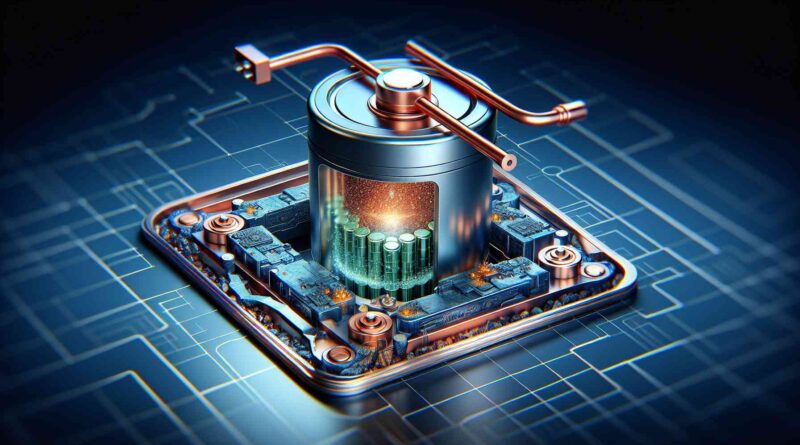A Closer Look at Cobalt in Solid State Batteries: Innovations and Challenges
Batteries have long been the lifeblood of modern electronics, and as we stride toward a greener future, their significance in electric vehicles (EVs) and renewable energy storage solutions has become increasingly paramount. Amidst the push for more efficient and sustainable batteries, solid-state technology has emerged as a promising successor to the incumbent lithium-ion batteries. A crucial but contentious component of this evolving technology is cobalt, a metal that has spurred both technological advances and ethical debates.
Understanding solid-state State Batteries
To appreciate the role of cobalt within solid-state batteries, it is important to understand the basics of the technology itself. Solid-state batteries differ from traditional lithium-ion batteries by using a solid electrolyte instead of a liquid one. This solid electrolyte can be made of polymer, ceramic, or a glass-like substance, which allows for the flow of ions that generate electric currents. Solid-state batteries offer several advantages, including higher energy density, increased safety, and longer lifespans.
Cobalt’s Role in the Narrative
In the context of solid-state batteries, cobalt’s significance comes from its role in cathode materials. Cobalt helps stabilize the structure of the cathode, ensuring efficient and sustained energy flow. It contributes to the high energy density and longevity of batteries, which are essential for applications where weight and space savings are critical, like in EVs or aerospace technologies.
However, cobalt has been marred by concerns over its ethical sourcing and environmental impact. The metal is primarily mined in the Democratic Republic of Congo (DRC), where issues such as child labor, exploitation, and environmental degradation have been reported. This has led manufacturers and researchers to look for ways to minimize or eliminate the use of cobalt in battery production.
Innovations in Cobalt Usage
Cutting-edge research is focusing on reducing the cobalt content in solid-state batteries without compromising their performance. For instance, strategies such as substituting cobalt with nickel or manganese or creating novel cathode compositions that require less cobalt are gaining traction. These approaches aim to maintain the battery’s stability and energy output while alleviating the ethical and environmental dilemmas associated with cobalt.
Challenges Ahead
The most formidable challenge faced by solid-state battery technology, with or without cobalt, is scaling up production to meet the demands of mass-market applications like EVs. The manufacturing processes for these batteries need to be refined to lower costs and improve yield rates. Moreover, researchers must ensure that reducing cobalt content does not lead to unintended consequences like shortened battery lifespans or reduced performance under temperature variations.
Additionally, solid-state batteries are still in their relative infancy; thus, ongoing research and development are crucial to overcoming the technical obstacles. These include issues such as electrolyte instability, dendrite growth, and maintaining a strong contact between the solid electrolyte and the electrodes.
Final Thoughts
The shift towards cobalt-free or cobalt-reduced solid-state batteries signifies a new era for energy storage technology that is both high-performing and more sustainable. As industries and consumers become more eco-conscious, the pressure to evolve battery technology increases. Cobalt will likely continue to play a part in this transition, but its role may be diminished as alternative materials and technologies come to the forefront.
In the quest for the optimal balance between performance, cost, and ethical concerns, both established companies and startups are pouring resources into the development of these next-generation energy storage solutions. Solid-state batteries, with or without cobalt, will undoubtedly shape the future of our energy consumption and the broader push toward a greener, more sustainable world.
FAQs
What are solid-state batteries?
Solid-state batteries are a type of battery that uses a solid electrolyte instead of the liquid electrolyte found in traditional lithium-ion batteries. This change can lead to improved safety, higher energy density, and longer battery life.
Why is cobalt used in batteries?
Cobalt is used in batteries due to its ability to stabilize the cathode material, enhancing the battery’s overall energy density and efficiency. It also contributes to the longevity and reliability of battery cells.
What are the ethical concerns related to cobalt?
The ethical concerns about cobalt arise from the conditions under which it is mined, particularly in the DRC. These include human rights violations, child labor, exploitation of workers, and environmental damage.
Are there alternatives to using cobalt in batteries?
Yes, research is ongoing to find alternatives to cobalt in battery technology. This includes using other materials such as nickel or manganese or exploring entirely different cathode formulations that reduce or eliminate the need for cobalt.
When can we expect solid-state batteries to be widely available?
While solid-state batteries are already being used in some niche applications, widespread commercial availability for applications like electric vehicles may still be several years away as the technology matures and manufacturing processes are optimized.
Source : ts2.com.pl




